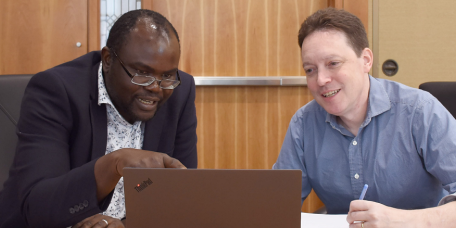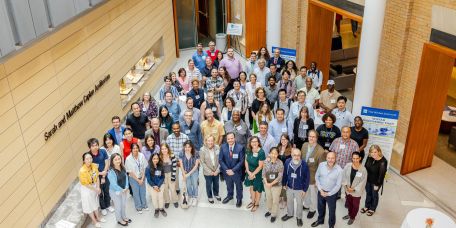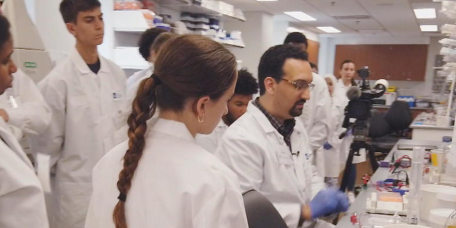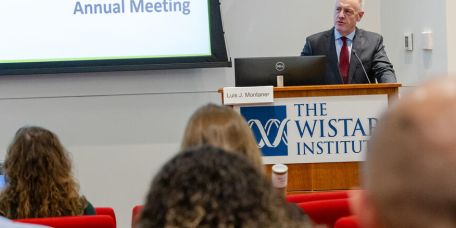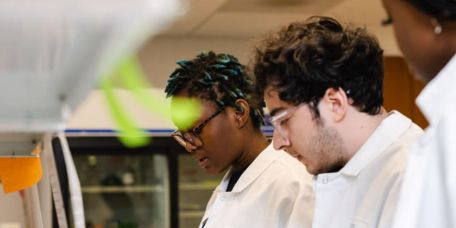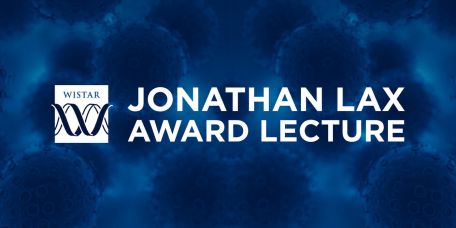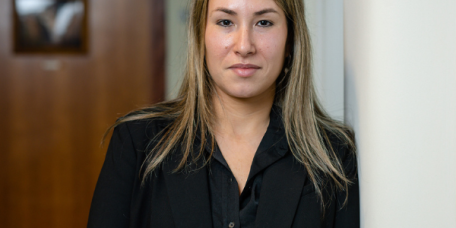The Wistar Institute
Wistar Scientists Collaborate with University of Buea Researchers to Identify Plant-Based Medicinal Compounds
Advanced computer models from Cameroon allow scientists to screen hundreds of compounds efficiently. Wistar Research Assistant Professor Dr. Ian Tietjen of the Montaner Lab — in his collaboration with Dr. Fidele Ntie-Kang, Associate Professor and He…
New Community Partnership Model Boosts Inclusion of Participants into HIV Cure-Directed Research
PHILADELPHIA — (July 19, 2023) — Scientists have long used community advisory boards to engage communities and provide feedback on studies, but this model has limitations. Now, researchers from The Wistar Institute are sharing how a more inclusive m…
CBS3 Spotlights Wistar High School Training of Next-gen Scientists
Emmy-award winning CBS3 health reporter Stephanie Stahl stops by The Wistar Institute to meet the students and scientist-mentors behind this essential training of the next generation of scientists.
First In-Person Jonathan Lax Memorial Award Lecture Since 2019 Brings Scientists, Community Together at The Wistar Institute
Philadelphia—For the first time since 2019, The Wistar Institute opened its doors to host, in person, the 27th annual Jonathan Lax Memorial Award Lecture, which featured Deborah Persaud, M.D., Professor of Pediatrics at the Johns Hopkins School of M…
Quality Science Pathway Apprenticeship Applications Due July 31
The Wistar Institute’s Quality Science Pathway Apprenticeship provides an accelerated pathway to careers in the Biotechnology and Pharmaceutical industries. Applications for 2023-2024 are due by July 31. Participants complete three industr…
Wistar Honors Pediatric HIV Researcher in 27th Annual Jonathan Lax Memorial Award Lecture
PHILADELPHIA—(June 22, 2023)—The Wistar Institute hosts its 27th Jonathan Lax Memorial Lecture Thursday, June 29th at 5:30 pm EST. For the first time since 2019, the signature event will be hosted in-person at Wistar; it is also being streamed to en…
Wistar Institute Study Gives New Insight into How Cancer Metastasizes to the Brain
PHILADELPHIA — (June 20, 2023) — When cancer that starts in the body metastasizes to the brain, it is almost always lethal, in part because so few treatment options exist. Now a new study by Wistar scientists published in Nature Communications shows…
The Art and Science of Dr. Livio Azzoni
Dr. Livio Azzoni racks up 20+ miles a week running to and from work at The Wistar Institute. This senior staff scientist in the laboratory of Dr. Luis Montaner took up running 13 years ago because he was, “Growing, but in the wrong direction. [I] wa…
Noam Auslander, Ph.D.
Assistant Professor, Molecular and Cellular Oncogenesis Program, Ellen and Ronald Caplan Cancer Center
Dario C. Altieri, M.D.
President and Chief Executive Officer
Director, Ellen and Ronald Caplan Cancer Center
Robert and Penny Fox Distinguished Professor, Genome Regulation and Cell Signaling Program
